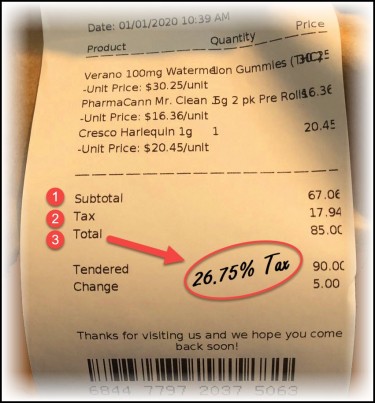Cannabis News
The End of the Hemp Industry? The DEA is Coming for Hemp-Derived Delta-8 THC, And Maybe More Synthetic Cannabinoids
Published
2 years agoon
By
admin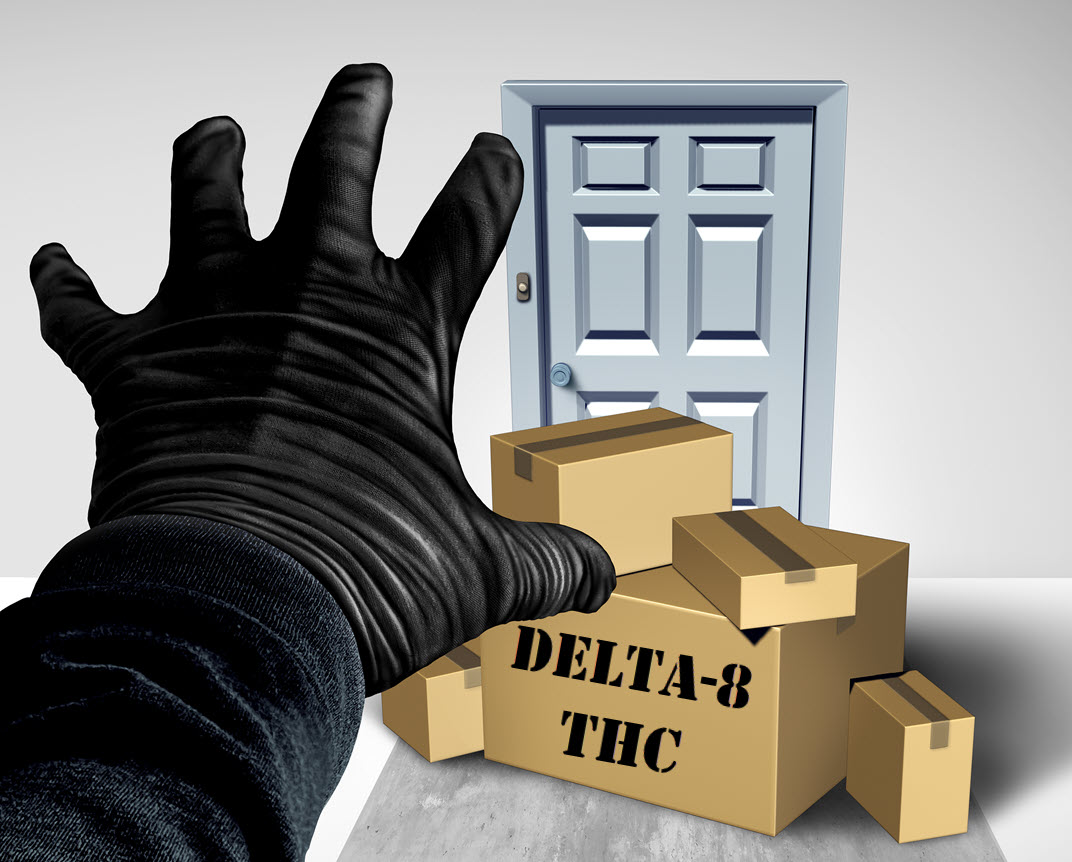
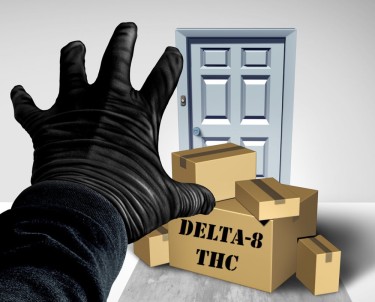
Your Corporate Political Overlords discuss the finer details on how they own you
Did you hear?
The DEA recently released their new updated “slaver’s agreement,” where your bodily autonomy gets violated and labeled a “crime” – in which you forgo your liberty under the 12th Amendment and become property of the state.
Their latest update comes in retaliation to the market’s “loophole”, Delta-8 THC.
Allow me to summarize an article originally published in Marijuana Moment.
The Drug Enforcement Administration (DEA) is at it again, my fellow cannabis enthusiasts. According to recent reports, the DEA is preparing to propose new rules that would classify synthetically manufactured cannabinoids, such as delta-8 THC, as prohibited controlled substances. Oh, joy!
During the agency’s Supply Chain Conference, Terrance Boos, the chief of the DEA’s Drug and Chemical Evaluation Section, revealed their plans to modify regulations on cannabis constituents based on recommendations from the U.S. Department of Health and Human Services (HHS). One proposed change is to “decontrol CBD up to 0.1 percent THC.” In other words, they want to loosen the grip on CBD slightly, but don’t get too excited—it’s a minuscule step in the right direction.
The intention behind these new rules, they claim, is to provide clarity and eliminate confusion surrounding the legal status of various cannabinoids. Since the federal legalization of hemp and its derivatives under the 2018 Farm Bill, the market for cannabis products has exploded. However, the emergence of intoxicating cannabinoids like delta-8 THC has caused quite the stir, prompting lawmakers in various states to scramble and create a chaotic patchwork of regulations for these products.
Here’s the thing, my friends: delta-8 THC does occur naturally in cannabis in trace amounts, and the DEA had previously confirmed that these natural constituents were uncontrolled. But hold on to your hats because they’re about to drop the hammer. The DEA wants to crack down on “synthetic delta-8 THC”, which is produced through a chemical process that converts CBD into this delightful compound.
They argue that synthetic tetrahydrocannabinols, like delta-8 THC, are not exempted from the Controlled Substances Act (CSA), unlike their naturally produced counterparts.
Basically, they just closed the “loophole” with the legal Delta 8 issue.
Now, let’s take a moment to appreciate the sheer brilliance of this move. The DEA, in their infinite wisdom, wants to tighten their grip on a compound that can be obtained naturally from the plant but is suddenly deemed dangerous when synthesized in a lab. It’s almost as if they’re determined to make our lives as difficult as possible while completely disregarding the scientific evidence and the will of the people.
But we know that the Controlled Substance Act never utilized Science or Reason at its core. We know that the CSA is merely a tool of the oppressors
But fear not, my dear readers, for the battle is not lost. The final rule from the DEA is yet to be unveiled, and we must remain vigilant and united in our fight for cannabis freedom. Additionally, there are potential changes on the horizon with the next iteration of the farm bill and President Biden’s review of marijuana scheduling. These developments could shape the landscape of cannabis regulation and have a profound impact on the industry.
However, when it comes to Biden and his ilk – I wouldn’t hold my breath. In fact, those guys are trying to set it up so that Pharma can get main control over the cannabis industry. This is because irrespective of their party colors – they all serve the same masters.
In the midst of this regulatory frenzy, it’s crucial to stay informed and engaged. Companies and individuals must pay attention and actively participate in the discussions surrounding these issues.
The lack of regulatory guidance from the Food and Drug Administration (FDA) only adds to the confusion. The FDA has yet to establish clear rules for hemp-derived CBD products, leaving companies and consumers in a state of limbo.But then again, this isn’t surprising either.
The FDA has the power to reschedule cannabis and provide much-needed regulatory clarity. But alas, they claim they lack the authority to do so without congressional support. Meanwhile, the DEA, who holds the keys to the rescheduling kingdom, insists on relying on the FDA’s scientific review before making any moves. It’s a never-ending loop of finger-pointing and bureaucratic inertia, leaving us stuck in a limbo of uncertainty. Oh, the joys of government bureaucracy at its finest!
This is also by design. It’s not an accident that the FDA – which is primarily funded by Pharma – somehow can’t seem to get the “safety profile” of cannabis after decades and decades of research. But magically, almost as if they were paid billions – they could fast track a vaccine that was not effective at stopping transmissions and empirically didn’t perform that much better than natural immunity.
But I digress.
While we brace ourselves for the DEA’s final rule on synthetic cannabinoids, we must remember that enforcement resources are limited. The FDA is likely to focus on public safety concerns and legality, as demonstrated by their joint enforcement action in Minnesota. The ultimate decision rests with the DEA, and we can only hope they’ll come to their senses and acknowledge the absurdity of their current stance.
So, my friends, let us stand together in defiance of the DEA’s attempts to stifle our freedom and enjoyment of cannabis. We must remain informed, engaged, and vocal in our opposition to these draconian regulations.
But let’s dive deeper into how this will impact the cannabis industry, especially in states that don’t have cannabis laws on the books.
How this change will impact legal THC?
Well, in a nutshell, the DEA has given themselves the power to go out and bust up any sales of Delta-8 that “isn’t natural”. How they will prove this is still to be decided, but essentially, you can expect them to conduct raids or at the very least send out “cease and desist” letters to those establishments that are currently selling it.
But that is only talking about the legal establishments. The real victims here are the people who need access to cannabis in prohibition states.
You see, Delta-8 THC, a cannabinoid derived from hemp, has been providing a legal avenue for individuals, including veterans and those suffering from chronic pain, to access the therapeutic benefits of cannabis without running afoul of strict state laws. It was a glimmer of hope, a ray of light in the darkness of prohibition.
But alas, the DEA, in their insatiable need to remain relevant and flex their authority, has decided to crush that hope.
By classifying Delta-8 THC as illegal, they have effectively cut off the legal option for those who rely on its medicinal properties. Once again, individuals in prohibition states are forced to go underground, to seek out illicit sources for their cannabis needs. It’s a tragic cycle, my friends, one that perpetuates the black market and denies people access to safe, regulated products.
The DEA’s decision is particularly disheartening because it disregards the growing acceptance and tolerance of adult drug use in our society.
As more and more states embrace cannabis legalization, it seems the DEA is desperately clinging to the vestiges of a bygone era. Instead of adapting to the changing times and acknowledging the potential benefits of cannabis, they choose to stifle progress and maintain their grip on power.
In doing so, the DEA not only undermines the rights of individuals to make informed choices about their own well-being but also perpetuates the harms of the black market. It’s a lose-lose situation, my friends.
Those in need of cannabis for medical purposes are left without legal options, and the black market thrives once again, with all its associated dangers and risks.
So, we find ourselves in a familiar position, caught in the crossfire of outdated policies and misguided attempts to control what people choose to put in their bodies.
It’s a frustrating reality, but one that only strengthens our resolve to advocate for sensible drug policies and the rights of individuals to access the substances that can improve their quality of life.
My dear friends, the time has come for a new conversation, a conversation that challenges the outdated notions surrounding drugs, drug use, and individual autonomy. We must question the hypocrisy that exists in our society, where we are allowed to consume unhealthy processed foods and poison ourselves with high-fructose garbage, but somehow lack the intelligence to make informed decisions about other substances.
It’s time to recognize that agencies tasked with protecting us from ourselves are unnecessary and often hinder progress. We should have the right to determine what we put into our bodies, as long as we are aware of the risks and benefits involved. The freedom to make choices about our own well-being should extend to all areas of consumption, not just those deemed acceptable by societal norms.
Let us be outspoken about these issues, my friends. Let us challenge those who cling to archaic ideas and stand in the way of progress. It is time to evolve beyond the restrictive mindset of the 1900s and embrace a future where individual autonomy is cherished and respected.
Together, let us advocate for a society that values personal freedom, informed decision-making, and the right of individuals to determine what is best for their own bodies. Only through open dialogue and a commitment to change can we pave the way for a more enlightened and compassionate approach to drugs and human rights.
So, my friends, let us raise our voices, challenge the status quo, and forge a path towards a future where the rights of individuals are paramount. The time for change is now, and together, we can create a society that truly embraces individual autonomy as a sacred right.
MORE ON THE DEA OVER-REACH, READ ON…
THE DEA IS COMING FOR DELTA-8 THC, HHC, AND HEMP-DERIVED PRODUCTS!
You may like
-


HHC vs. Delta 9: Differences & Similarities
-
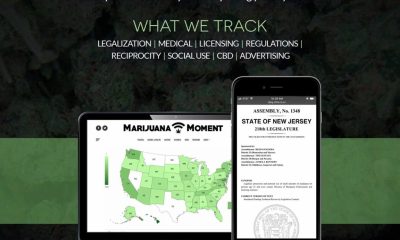

DOJ Asks Federal Court To Deny Doctors’ Lawsuit Over Marijuana Rescheduling Hearing To Avoid ‘Undue Delay’
-


What Federally Illegal Drug Has Created Almost $10 Billion in Sales Tax Revenue for States in the Last 40 Months?
-


Three Wise Men Give Marijuana Strain Gift Suggestions
-


Tasmanian Hemp Assoc Bids Goodbye To Australian Hemp Council
-


Teen Marijuana Use Continues To Drop With Legalization
Cannabis News
HHC vs. Delta 9: Differences & Similarities
Published
1 day agoon
December 20, 2024By
admin

Cannabis has so many compounds, and two that have been making the rounds lately are HHC and Delta 9 THC. They’re not the same thing, even though they’re both cannabinoids that interact with the body’s endocannabinoid system. Some people want a mild, steady experience, while others might be looking for something more intense. Understanding these two can help you figure out what’s right for you.
What Is HHC?
HHC, short for hexahydrocannabinol, is a hydrogenated version of THC. It’s not something you’d find naturally in large amounts in cannabis plants. Instead, it’s made through a process that adds hydrogen molecules to THC. The result? A more stable compound that’s less prone to breaking down when exposed to heat or UV light.
How HHC Is Made
Think of it like a science experiment. HHC is usually created in a lab by taking Delta 9 or Delta 8 THC and using hydrogenation—basically, combining it with hydrogen under pressure and in the presence of a catalyst. This process changes its structure while keeping its effects somewhat similar to THC.
Common Uses and Effects of HHC
People who use HHC say it’s somewhere between Delta 8 and Delta 9 in terms of effects. It’s often described as relaxing but without being overly sedative. You might feel a light buzz, reduced stress, or mild euphoria. Some even claim it helps with discomfort or improving sleep, but solid research is still catching up. Since it’s less potent than Delta 9, it’s often favored by those who want a manageable experience without the strong psychoactive punch.
If you’re interested in trying HHC and Delta 9 for yourself, check out their wide range of products at trycandycloud.com. They’ve got everything from gummies to disposable vapes, all crafted for a smooth experience.
What Is Delta 9 THC?
Delta 9 THC is the main psychoactive compound in cannabis. It’s the reason you feel “high” when you use weed. Chemically speaking, Delta 9 has a double bond in its ninth carbon chain, which plays a big role in how it interacts with your brain.
Natural Occurrence in Cannabis
This one is straightforward: Delta 9 is found in high concentrations in marijuana plants. It’s what most people think of when they hear “THC.” Unlike HHC, there’s no need for a lab process—it’s already there. Hemp plants, however, contain much lower levels of Delta 9 THC, which is why it’s primarily extracted from marijuana.
Common Uses and Effects of Delta 9 THC
The effects of Delta 9 are well-documented. Depending on the dose, you might feel euphoria, increased appetite, or deep relaxation. For medical users, it’s often used to manage chronic pain, nausea, and other conditions. It’s also been studied for its potential benefits in anxiety relief, though higher doses might have the opposite effect, causing paranoia. Delta 9 THC is versatile, but it’s not without its risks, particularly for new users or those sensitive to its psychoactive effects.
Key Differences Between HHC and Delta 9 THC
Chemical Structure and Composition
The main difference is in their structure. Delta 9 THC has that iconic double bond, while HHC’s hydrogenation makes it more stable. This difference might not mean much to the average person, but it’s why HHC is less likely to degrade over time.
Potency Levels
Delta 9 THC is generally more potent. HHC might require a higher dose to get a comparable effect, but some people prefer its lighter touch. Potency differences can also depend on the method of consumption, with edibles typically providing a stronger, longer-lasting effect compared to vaping or smoking.
Duration of Effects
Both last a few hours, but some users report that HHC’s effects fade more gradually. Delta 9, on the other hand, can have a sharper comedown. HHC’s gradual fade makes it appealing for those who want a smooth end to their experience.
Benefits and Drawbacks of HHC and Delta 9 THC
HHC: Pros and Cons
Pros:
- More stable, so it lasts longer on the shelf.
- Effects are milder, making it less overwhelming for beginners.
- Can be a functional option for daytime use.
Cons:
- Limited research, so we don’t know its full impact yet.
- Availability can be hit or miss depending on where you live.
- Legal gray area in many regions.
Delta 9 THC: Pros and Cons
Pros:
- Well-studied with established medical uses.
- Widely available in areas where cannabis is legal.
- Stronger effects make it ideal for experienced users or those with high tolerance.
Cons:
- Higher chance of side effects like anxiety.
- More likely to show up on drug tests.
- Shorter shelf life compared to HHC.
Frequently Asked Questions (FAQ)
Q. Is HHC safer than Delta 9 THC?
Not enough research exists to say definitively, but HHC’s milder effects might make it feel safer to some users.
Q. Will HHC or Delta 9 THC show up on a drug test?
Yes, both can potentially show up on a drug test, so use with caution if that’s a concern.
Q. Which one is better for recreational use?
That depends on your preferences. HHC is great for a mellow time, while Delta 9 is better if you’re looking for something more intense.
HHC vs. Delta 9: Choosing the Right One for You
The choice comes down to what you’re after. If you want a milder, more laid-back experience, HHC might be a good option. On the other hand, if you’re looking for something stronger or need it for medical reasons, Delta 9 is the way to go. It also depends on what’s legal and available where you are. And always consider your tolerance levels and experience before diving in. If you’re unsure, consult with a knowledgeable dispensary staff.
Resources:
Cannabis News
What Federally Illegal Drug Has Created Almost $10 Billion in Sales Tax Revenue for States in the Last 40 Months?
Published
2 days agoon
December 20, 2024By
admin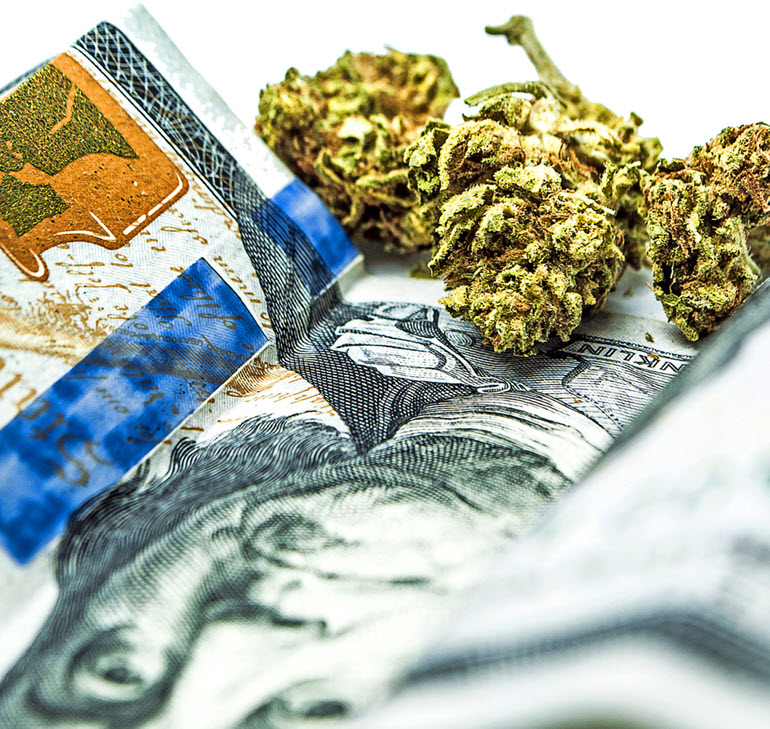
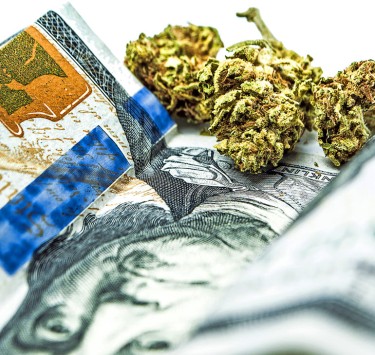
In a significant development for the burgeoning cannabis industry, the U.S. Census Bureau has reported that states across the nation have collectively amassed over **$9.7 billion** in tax revenue from marijuana sales since mid-2021. This figure underscores the economic impact of legalized cannabis and highlights the growing acceptance of marijuana as both a recreational and medicinal substance in various states. As more states move toward legalization, the financial implications both positive and negative are becoming increasingly evident.
The Landscape of Cannabis Legalization
The journey toward cannabis legalization in the United States has been long and complex. Initially criminalized in the early 20th century, cannabis began to regain acceptance in the late 20th century, particularly for medical use. The first state to legalize medical marijuana was California in 1996, setting a precedent that many states would follow.
By 2012, Colorado and Washington became the first states to legalize recreational cannabis, paving the way for a wave of legalization efforts across the country. As of now, more than 20 states have legalized recreational marijuana, while over 30 states allow medical use. This shift reflects changing public attitudes toward cannabis and recognition of its potential benefits.
Economic Implications of Legalization
The legalization of cannabis has not only transformed social norms but has also created a substantial economic impact. States that have embraced legalization have seen significant increases in tax revenue, job creation, and investment opportunities.
According to the latest Census Bureau report, states like California, Colorado, Illinois, and Michigan have emerged as leaders in cannabis tax revenue generation. These states have implemented various tax structures on marijuana sales, including excise taxes, sales taxes, and local taxes. The revenue generated is often earmarked for essential public services such as education, healthcare, infrastructure improvements, and drug rehabilitation programs.
Breakdown of Tax Revenue by State
As the largest legal cannabis market in the United States, California has been at the forefront of marijuana tax revenue generation. Since mid-2021, California has contributed approximately $2.5 billion to state coffers from cannabis taxes. This revenue is derived from both recreational and medical marijuana sales.
California’s tax structure includes a 15% excise tax on retail sales, along with local taxes that can vary significantly by city and county. The state has allocated a portion of these funds to various programs aimed at addressing issues related to drug abuse and public health.
Colorado was one of the pioneers in cannabis legalization and continues to serve as a model for other states. Since mid-2021, Colorado has generated around $1.8 billion in tax revenue from marijuana sales. The state imposes a 15% excise tax on wholesale marijuana transactions and a 2.9% sales tax on retail sales.
The revenue generated from cannabis taxes has been instrumental in funding education initiatives through the Public School Fund, as well as supporting mental health programs and substance abuse treatment services.
Illinois has seen remarkable growth in its cannabis market since legalizing recreational use in January 2020. In just two years, Illinois has collected approximately $1 billion in tax revenue from marijuana sales. The state imposes a tiered excise tax based on the potency of the product, ranging from 10% to 25%.
The funds collected are allocated to various initiatives, including community reinvestment programs aimed at addressing social equity issues related to past drug enforcement practices.
Michigan’s cannabis market has also flourished since legalization. Since mid-2021, Michigan has generated about $700 million in tax revenue from marijuana sales. The state’s tax structure includes a 10% excise tax on recreational marijuana and a 6% sales tax.
The revenue is utilized for various purposes, including education funding and support for local governments impacted by legalization.
Broader Economic Impact
The legalization of cannabis has led to significant job creation across various sectors. According to industry reports, the legal cannabis market supports hundreds of thousands of jobs nationwide—from cultivation and processing to retail and distribution. As more states legalize marijuana, this trend is expected to continue.
With the growth of the legal cannabis industry comes increased investment opportunities. Entrepreneurs are entering the market at an unprecedented rate, leading to innovations in product development, marketing strategies, and distribution channels. This influx of investment not only benefits individual businesses but also stimulates local economies.
Social Equity Considerations
While the financial benefits of cannabis legalization are clear, it is essential to address social equity issues that arise alongside this new industry. Many states have recognized that communities disproportionately affected by past drug enforcement policies should benefit from legalization efforts.
States like Illinois have implemented community reinvestment programs that allocate a portion of cannabis tax revenues to support communities impacted by previous drug laws. These funds can be used for education initiatives, job training programs, and mental health services—aiming to rectify historical injustices associated with cannabis prohibition.
In addition to financial support for communities affected by past policies, some states are also working to create equitable licensing opportunities for individuals from those communities. By prioritizing applications from minority-owned businesses or those directly impacted by previous drug laws, states can foster a more inclusive cannabis industry.
Challenges Ahead
Despite the significant progress made through legalization efforts, challenges remain on both state and federal levels.
Federal Legalization Uncertainty
One major hurdle is the ongoing conflict between state and federal laws regarding cannabis. While many states have legalized marijuana for recreational or medical use, it remains classified as a Schedule I substance under federal law. This discrepancy creates complications for businesses operating legally at the state level but facing potential federal prosecution.
Efforts toward federal legalization or decriminalization have gained traction recently; however, progress remains slow due to political divisions and differing opinions on drug policy reform.
Regulatory Hurdles
As more states enter the legal cannabis market, regulatory frameworks must evolve to ensure consumer safety while promoting fair competition among businesses. States face challenges related to product testing standards, labeling requirements, advertising restrictions, and taxation policies that can impact market dynamics.
Conclusion
The U.S. Census Bureau reports that states have collected over $9.7 billion in marijuana tax revenue since mid-2021, highlighting the significant economic impact of cannabis legalization. As public acceptance grows, more states are likely to pursue legalization. Despite ongoing challenges, including federal regulations and social equity issues, legalized cannabis is poised to remain a vital part of state economies. Collaboration among government officials, business leaders, and community advocates will be essential for fostering an equitable and sustainable cannabis industry. This evolving landscape not only presents economic growth opportunities but also addresses historical injustices tied to drug policy enforcement, shaping the future of cannabis legislation in the U.S.
WHAT STATES HAVE THE HIGHEST WEED TAXES? READ ON…
Cannabis News
Oregon Cannabis: State of the State (2024)
Published
3 days agoon
December 19, 2024By
admin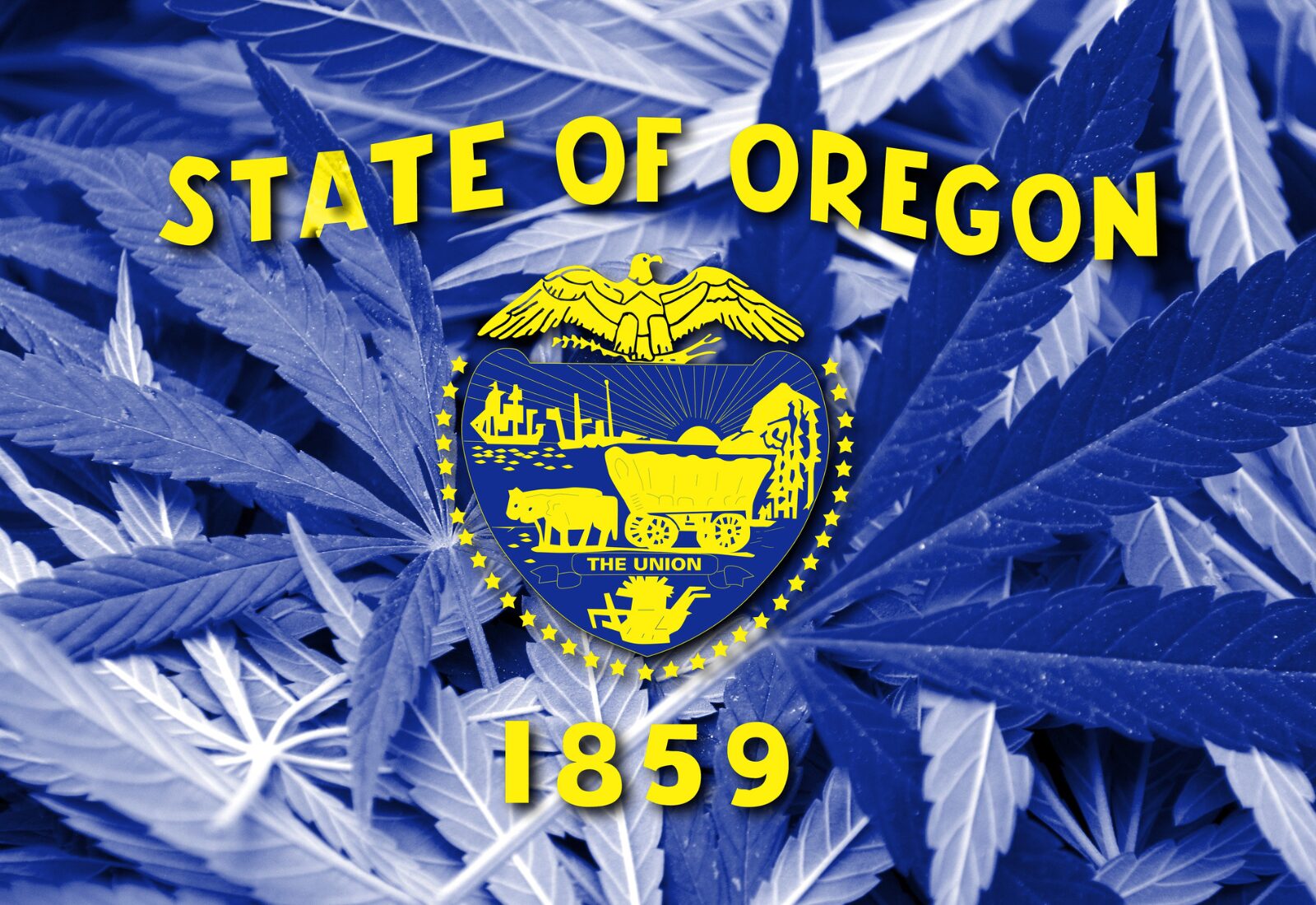
Welcome the ninth annual “State of the State” post on Oregon cannabis. I feel like an old man. As compared to 2023, things this year were pretty mellow. That’s not to say, however, that we don’t have trends, intrigues, controversies, mysteries, etc., worth writing about. Let’s dive right in.
Sales and market data
According to OLCC data, retail sales between January 1, 2024 and November 30, 2024 clocked in at $881 million. That is remarkably consistent with 2023, where we saw $874 million over the same 11-month span. If things remain steady for the next couple of weeks, Oregon should avoid a third consecutive drop in annual sales.
Prices are also relatively static. The median price per gram in the extract/concentrate category was $15.83/gram in November, floating from $15.36 to $16.00 throughout the year. For “usable marijuana”, which includes dried flowers and leaves, prices fluctuated from $3.89/gram to $3.57/gram last month.
October saw Oregon’s largest METRC harvest, ever, with 5,733,288 pounds reported. I’m sure the illicit market had a bumper year too; weather is the same for everyone and the enforcement paradigm is static. Anyway, the October numbers equal 900,000 more pounds than the same month in 2023. Consumers may benefit, but that can’t be great for pricing.
As far as what people are actually buying at OLCC shops:
- 2% of purchases are for usable marijuana
- 25% are extracts/concentrates
- 7% are edibles/tinctures
- 10% are “inhalable product with non-cannabis additives”
- 4% is “other”; and
- 6% is industrial hemp commodity products.
Yes, that equals 100%. In 2023, I noted a “years-long trend of usable marijuana sales decreasing per capital in favor of other categories.” The trend continued in 2024 (usable marijuana sales dropped another 2.5% year over year). Last year, I wrote that “my impression is that near-term growth may be limited to select SKUs and product categories.” Still feel that way.
Licenses and licensing
Our years-long OLCC licensing moratorium was made permanent in 2024 (more on that below). Overall, license numbers declined marginally across the board. Here’s a table showing current numbers as compared to 2023, which I wrote “was the first year I saw license numbers fall since the 2016 roll-out of the adult use program.”
| 2024 | 2023 | Change | |
| Producers | 1,375 | 1,389 | -14 |
| Processors | 288 | 312 | -24 |
| Wholesalers | 257 | 269 | -12 |
| Retailers | 789 | 818 | -29 |
| Labs | 13 | 15 | -2 |
| Research | 1 | 1 | none |
It’s good to see numbers dropping, I suppose. Most would agree that we have too many licenses across all categories– except perhaps for labs and research. Expect numbers to continue on a modest downward trend in 2025.
Industry limping along
In the last few State of the State posts, I’ve talked about businesses struggling. We’re still helping people sell or even walk away from things we helped them buy not long ago. In 2023, the big liquidation story was the Chalice receivership. In 2024, insolvency and cannabis receivership actions are still a regular occurrence. The largest of 2024 was the Tumalo receivership, which we structured here in the office, and which remains ongoing. We’re working on a few others as well: some are voluntary, and others, well, not so much.
Consolidation is still a fact of life in Oregon cannabis, with larger operators opportunistically picking up assets, mostly at retail. A majority of buy/sell transactions, however, seem to involve new market entrants and naked licenses. In these deals, a seller will relinquish its rights to an OLCC license in favor of a replacement license for the buyer— sometimes at the same location and sometimes in a new spot. Pricing on these transactions, which are styled as asset purchase agreements, has remained steady in each license class. That said, pricing can be negotiable.
Most of the bigger players are still around. A couple of people have asked me how that could be the case with a chain like La Mota, whose legal issues metastasized into a statewide controversy, and resulted in unwelcome tax compliance rules for OLCC retailers. The answer is simple: La Mota probably reached a deal on payment plan with the Department of Revenue. Elsewhere, we haven’t seen anything to convince us, one way or the other, that OLCC is making an effort to treat small businesses the same as the larger operators— a problem area we highlighted in 2023. That said, let’s see what happens with the labs.
OLCC chasing testing labs on THC inflation
On September 25th, OLCC sent enforcement notices to seven testing laboratories. I explained at the time that OLCC had:
Propos[ed] license cancellation in some cases and suspension or fines in others. The notices center on alleged THC inflation, and extend back to instances identified in 2023. We only have eleven labs in Oregon accredited to do this mandatory work, so OLCC chasing seven of them is a big deal.
This saga is still ongoing, and none of these cases are resolved to my knowledge. For considered and lawyerly reasons, I’ll reserve further comment on this one, beyond all that I’ve already said.
New OLCC rules and legislative changes
Various rules took effect in 2024, due to legislative changes this spring and an initiative vote in the fall. Here are the four biggest developments for me, in chronological order:
Licensing Moratorium
Oregon finally made its licensing moratorium permanent, when Governor Kotek signed House Bill 4121 on March 20, 2024. This means the only way to acquire a cannabis license in Oregon is to find someone willing to sell. That will likely be the case forever, based on unreachable “new license triggers” in HB 4121, and the fact that the legislature won’t reverse this new law.
Hemp Vendor License Requirement
This one took effect July 1. At that time, I wrote that the rule was “very broad and likely to catch people off guard.” That proved to be the case in my experience, including with respect to OLCC— I ended up writing them on September 30 after stumbling across incorrect FAQs on the topic. My guess is that a large number of Oregon businesses are still unaware of the license requirement, and therefore not compliant, and that it doesn’t really matter because enforcement is sparse or nonexistent.
Labor Peace Agreements
This one has been a scramble, with many licensees having to find a way to comply on short notice. The short story is that due to Ballot Measure 119, which passed in November, all OLCC licensed retailers, processors and labs must provide a signed labor peace agreement (LPA) with a bona fide labor organization, to renew or apply for an OLCC license. I still believe BM 119 is legally problematic, but someone needs to challenge it to obviate the LPA requirement.
Presumptive Hemp Testing Rules
The Oregon Department of Agriculture (ODA) issued a temporary administrative order following on HB 4121, which defines presumptive marijuana under its testing rules, outlines procedures for marijuana disposal, and outlines violations of ODA hemp licensure more generally.
__
We can expect to see more changes, as always, in 2025. OLCC is currently in rulemaking to implement HB 4121, to start. The 2025 legislative session next year is also a long one, lasting from January to June. I’ll write my usual session preview sometime in January, lest this post become extremely long. For now, the Cannabis Industry Alliance of Oregon (CIAO) has listed out is legislative priorities here.
Odds and ends
- 2024 must have been a welcome reprieve for OLCC, which remained mostly out of the spotlight after a trying year in 2023.
- Not much is going on with ODA and the hemp industry, beyond what I mentioned above.
- Shout-out to CIAO, which was organized and effective in its first full year as Oregon’s consolidated, cannabis trade group.
- Local cannabis banking is getting easier all the time. Most recently, we built out a cannabis banking program for Central Willamette Credit Union, the newest Oregon service provider.
- I’m still pessimistic about a federal cannabis banking bill, but I’m hopeful for federal rescheduling. A move for marijuana to Schedule III would do away with punitive tax code provision IRC § 280E – hopefully in calendar year 2024. That development would immediately increase margins for Oregon cannabis businesses, across the board.
- Also at the federal level, this was our last year with Earl Blumenauer, Congress’s greatest ever cannabis advocate.
Oregon cannabis: that’s a wrap
Let me know in the comments if you think I missed anything worth mentioning, or shoot me an email. There is always something. In the meantime, here’s hoping for smooth sailing for Oregon cannabis in 2025.
For previous posts in this series, check out the following:

HHC vs. Delta 9: Differences & Similarities
DOJ Asks Federal Court To Deny Doctors’ Lawsuit Over Marijuana Rescheduling Hearing To Avoid ‘Undue Delay’

What Federally Illegal Drug Has Created Almost $10 Billion in Sales Tax Revenue for States in the Last 40 Months?

Three Wise Men Give Marijuana Strain Gift Suggestions

Tasmanian Hemp Assoc Bids Goodbye To Australian Hemp Council

Teen Marijuana Use Continues To Drop With Legalization

The Best Cocktails To Make You Feel Festive

Cannabis predictions for 2025: Low prices, high taxes, and hash

Oregon Cannabis: State of the State (2024)

Are MSOs Just Big Pharma on Steriods?

Distressed Cannabis Business Takeaways – Canna Law Blog™

United States: Alex Malyshev And Melinda Fellner Discuss The Intersection Of Tax And Cannabis In New Video Series – Part VI: Licensing (Video)

What you Need to Know

Drug Testing for Marijuana – The Joint Blog

NCIA Write About Their Equity Scholarship Program

It has been a wild news week – here’s how CBD and weed can help you relax

Cannabis, alcohol firm SNDL loses CA$372.4 million in 2022

A new April 20 cannabis contest includes a $40,000 purse

Your Go-To Source for Cannabis Logos and Designs

UArizona launches online cannabis compliance online course
Trending
-

 Cannabis News2 years ago
Cannabis News2 years agoDistressed Cannabis Business Takeaways – Canna Law Blog™
-

 One-Hit Wonders2 years ago
One-Hit Wonders2 years agoUnited States: Alex Malyshev And Melinda Fellner Discuss The Intersection Of Tax And Cannabis In New Video Series – Part VI: Licensing (Video)
-

 Cannabis 1012 years ago
Cannabis 1012 years agoWhat you Need to Know
-

 drug testing1 year ago
drug testing1 year agoDrug Testing for Marijuana – The Joint Blog
-

 Education2 years ago
Education2 years agoNCIA Write About Their Equity Scholarship Program
-

 Cannabis2 years ago
Cannabis2 years agoIt has been a wild news week – here’s how CBD and weed can help you relax
-

 Marijuana Business Daily2 years ago
Marijuana Business Daily2 years agoCannabis, alcohol firm SNDL loses CA$372.4 million in 2022
-

 California2 years ago
California2 years agoA new April 20 cannabis contest includes a $40,000 purse





